Foreseeable violent situations should be discussed with your Line Manager, where violence is predictable; you can refuse to take part in the production.
What Can Go Wrong?
- Injury from being punched or pushed to the ground or attacked with weapons
- Threatening or abusive words or behaviour may cause fear or anxiety
- Delayed retribution from filming violence /crime.
- Theft of personal items or work equipment.
Legal/Βι¶ΉΤΌΕΔ Requirements
- There are no specific legal requirements to draw to your attention; you must still apply the control measures that are relevant to your activity.
Control Measures
Management and Planning
- Research and consider potential hazards of the production in context of location and local issues.
- Be aware of and discuss the local security issues with whole team including attitude to the Βι¶ΉΤΌΕΔ, hostility to staff and general street crime levels.
- People covering events where civil disturbance or riots are predicted should be properly trained and experienced.
- If safety issues are identified, agree a fall back plan with the team including what to do in an emergency, safe place to retreat to (broadcast compound) and who to contact e.g. Production Editor or producer.
- Plan ahead on how to deal with the situation and how to get away if necessary.
- Talk about the situation and threats with the team and escalate if needed.
- People should not be sent to foreseeably violent or personal safety situations on their own.
- Consider need for a second person if crime is a serious consideration – remember you can ask Βι¶ΉΤΌΕΔ experts for advice.
- Arrange a security back-watcher / second person if required (see Engaging Personal Security Agents in Useful Documents)
- Refer to the Βι¶ΉΤΌΕΔ - Editorial Guidelines for advice in response potential retribution for filming
- All requests for programme material in connection with legal proceedings must be referred to Programme Legal Advice and Editorial Policy, prior to disclosure.
On the Ground
- Keep a low profile
- Display Βι¶ΉΤΌΕΔ logo unless there is a good reason not to e.g. if this raises the personal risk.
- Agree a fall back plan with the team.
- Ensure deployers are kept up to date with local security and safety risks so that changes to the story can be made if needed.
- Stay alert to changes on location and be prepared to change your plans to avoid trouble.
- Ensure the production is kept up to date with local security & safety risks.
- Avoid taking unnecessary valuables, sensitive documents and equipment into the field.
- If threatened by criminals – hand over the Βι¶ΉΤΌΕΔ kit. People are more important than property.
- Withdraw to a safe area if faced with aggression or if weapons appear.
- Be aware of response times and telephone numbers for emergency services and first aid.
- Be sensitive to the mood and back off if violence is likely.
- Use occupational health and employee assistance contacts.
Division Specific Issues
Sport
- Sport production is generally planned and safe. Despite this, there is always a risk that because of the area the production is located or spectators become aggressive, personal safety can be compromised.
- Although aggression at some events is likely (e.g. known team rivalry) because it is not always possible to predict – personal safety should be considered for every production.
FAQs/Did You Know?
- None to report
Useful documents
-
[Βι¶ΉΤΌΕΔ Network only]
-
[Βι¶ΉΤΌΕΔ network only]
Recommended links
-
[Βι¶ΉΤΌΕΔ Network only]
-
Academy: Safety of Women Journalists Video on security issues for women covering stories alone / abroad
-
[Βι¶ΉΤΌΕΔ network only]
-
Guide to crime prevention and personal safety
Personal security topics
-
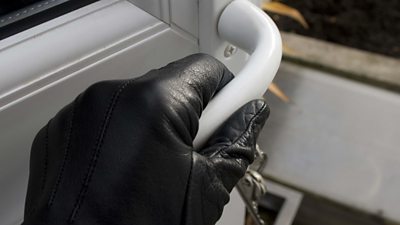 Security (Personal) Measures you can take to help protect yourself
Security (Personal) Measures you can take to help protect yourself -
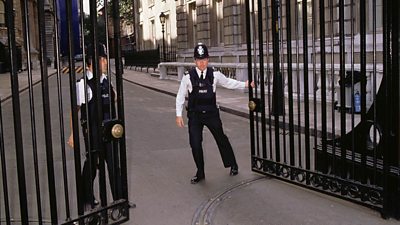 Security (on Location) Advice for maintaining security on productions
Security (on Location) Advice for maintaining security on productions -
 Covert Filming A guide to a genre of programmes which involve investigative journalism, surreptitious and covert filming or recording, creating potential personal security risks.
Covert Filming A guide to a genre of programmes which involve investigative journalism, surreptitious and covert filming or recording, creating potential personal security risks. -
 Courts of Law A guide to working in, outside or, around courts following a news story.
Courts of Law A guide to working in, outside or, around courts following a news story. -
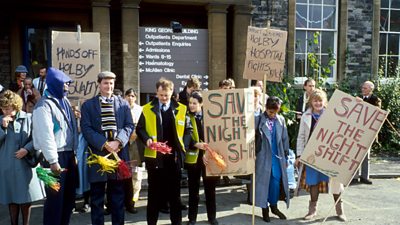 Demonstrations, Protests, and Crowds Βι¶ΉΤΌΕΔ Safety has a whole host of safety guidance to assist teams when they are planning a deployment to a demonstration or protest.
Demonstrations, Protests, and Crowds Βι¶ΉΤΌΕΔ Safety has a whole host of safety guidance to assist teams when they are planning a deployment to a demonstration or protest. -
 Door-Stepping The risks of obtaining an interview, or piece to camera, from a contributor without prior arrangement or agreement.
Door-Stepping The risks of obtaining an interview, or piece to camera, from a contributor without prior arrangement or agreement. -
 Harassment and Stalking Guideline to harassment and stalking, including internet / social media trolling.
Harassment and Stalking Guideline to harassment and stalking, including internet / social media trolling. -
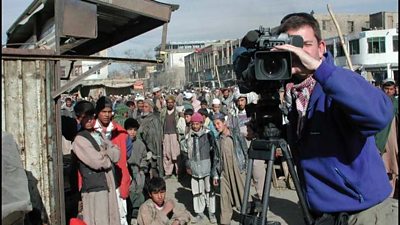 Lone Working This Guideline sets out the hazards and precautions to be considered when lone working, whether it is in the office, on location or overseas.
Lone Working This Guideline sets out the hazards and precautions to be considered when lone working, whether it is in the office, on location or overseas. -
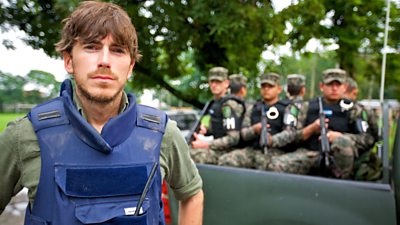 Security on Location Guideline provides measures to help mitigate the security threats associated with production activities on location, including door-stepping, covert filming, working with crowds and public order issues.
Security on Location Guideline provides measures to help mitigate the security threats associated with production activities on location, including door-stepping, covert filming, working with crowds and public order issues. -
 Violence and aggression Guidance on dealing with violence and aggression
Violence and aggression Guidance on dealing with violence and aggression
More from SSR
-
Your platform to record accidents, risk assessments, assurance monitoring and inspections
-
Safety Equipment Stores Just one number to call: 0844 800 8875
-
Βι¶ΉΤΌΕΔ Safety Guidelines An A-Z of Βι¶ΉΤΌΕΔ's Health and Safety Guidelines
-
Safety Advice Line: 0370 411 0464 Email: safety@bbc.co.uk
- A-Z of Βι¶ΉΤΌΕΔ Safety Guidelines
- Accident Reporting and Investigation
- Βι¶ΉΤΌΕΔ Health & Safety Policy
- Contractors (incl. vetted lists)
- Contributors
- Fire Safety
- Freelancers
- Independent Production Companies
- Risk Assessment
- Safety Alerts
- Safety Responsibilities
- Safety Training
- Sets & Premises Safety Guide
Events guidance - key links:
- Exhibitions
- General Guidance
- Indoor Location Recce Checklist
- Outdoor Location Recce Checklist
- Major Incidents & Emergency Planning
- Marketing and Promotional
- Noise Exposure
- Planning and Management
- Responsibilities
- Responsibilities Form
- Laser Lighting Effects
- Strobe Lighting
- Temporary Stages and Rostra
Health topics - key links:
- (Βι¶ΉΤΌΕΔ network only)
- Contributors Fitness to Participate
- Display Screen Equipment (DSE)
- (Βι¶ΉΤΌΕΔ network only)
- First Aid and Welfare on Location
- International Travel - Risks & Health
- Manual Handling
- Mental Health: Βι¶ΉΤΌΕΔpage
- (Βι¶ΉΤΌΕΔ network only)
- Personal Health and Wellbeing
- Pregnancy
- Psychological Trauma Support & Trauma Risk Management (TRiM)
- Tiredness and Fatigue
- Travel Health Contacts
Βι¶ΉΤΌΕΔ High Risk - key links:
- CBRN and Industrial Spills
- Covert Filming
- Crisis Management and Security Support
- Demonstrations, Protests and Crowds
- Disaster Coverage
- Door Stepping
- (Βι¶ΉΤΌΕΔ network only)
- (Βι¶ΉΤΌΕΔ network only)
- Public Order
- Safety Equipment Stores
Βι¶ΉΤΌΕΔ Journalism - key links:
Βι¶ΉΤΌΕΔ Productions - key links:
- Aerial Filming and Airfields
- Animals: Displaying and handling for performance
- Boats: Working on
- Children and Young People
- Driving
- Electrical Equipment and Systems
- First Aid and Welfare on Location
- Food Safety (Cooking and Catering)
- Remote Location Working
- Roads and Streets: Working by
- Security of Productions on Location
- Stunts
- Tiredness and Fatigue
- Unmanned Aerial Systems (UAS aka Drones)
- Vehicles: Recording in, from and around
- Working at Height: Mobile Elevating Work Platforms
- Working at Height: Tower Scaffolds
Βι¶ΉΤΌΕΔ Radio - key links:
- (Βι¶ΉΤΌΕΔ Network only)
Βι¶ΉΤΌΕΔ Security - key links:
Βι¶ΉΤΌΕΔ Sport - key links:
About this site
This site describes what the Βι¶ΉΤΌΕΔ does in relation to managing its health, safety and security risks and is intended for those who work directly for the Βι¶ΉΤΌΕΔ.
It is not intended to provide instruction or guidance on how third parties should manage their risks. The Βι¶ΉΤΌΕΔ cannot be held liable for how this information is interpreted or used by third parties, nor provide any assurance that adopting it would provide any measure of legal compliance. More information
Some links on this site are only accessible when connected to the Βι¶ΉΤΌΕΔ network
